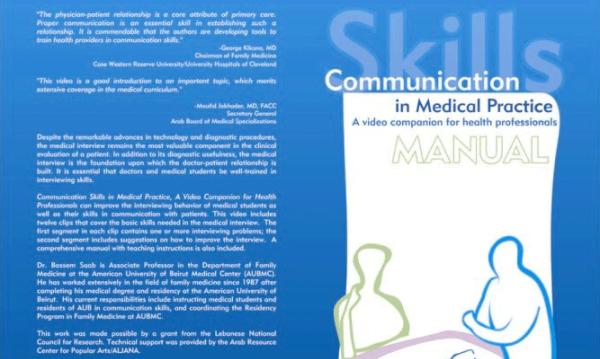
Importance
The importance of communication skills (CS) was realized a long time ago. Plato talked about two kinds of physicians:
-
The free doctor enters into discourse with his patients and friends and only prescribes after convincing his patients.
-
The slave doctor does not let his patient talk about his individual complaints, gives his orders, like a tyrant, and prescribes what experience dictates.
Today, we still face the same problems that Plato raised. More consumers/health-takers are showing their dismay at the way health professionals treat them.
This protest was clearly depicted by William Robins in Patch Adams. Recent research in North America shows that 50 percent of medical educators are not sure if clerks are receiving CS training, and 30 percent are unable to assess learners in this field.
Realizing this, the Accreditation Council for Graduate Medical Education in the United States requested that medical schools determine the communication skill levels of residents.
Content
(N.B.: Interviews are in Arabic with English subtitles)
-
Video critique
-
Scenario 1: Preparing the stage
-
Scenario 2: The opening
-
Scenario 3: Asking
-
Scenario 4: Clarification
-
Scenario 5: Facilitation
-
Scenario 6: Reflection
-
Scenario 7: Confrontation
-
Scenario 8: Summarizing
-
Scenario 9: Preparing the patient for the physical exam
-
Scenario 10: Congruence
-
Scenario 11: Negotiation
-
Scenario 12: The closing
Learning Objectives
After viewing this program, learners will
-
put the caretaker at ease.
-
list the verbal and nonverbal skills used in listening.
-
describe the different types of questions used in an interview.
-
state the principles of confronting the caretaker.
-
recognize the value of negotiation.
-
name the requirements for a proper closure of the interview
Manuals
Watch Video